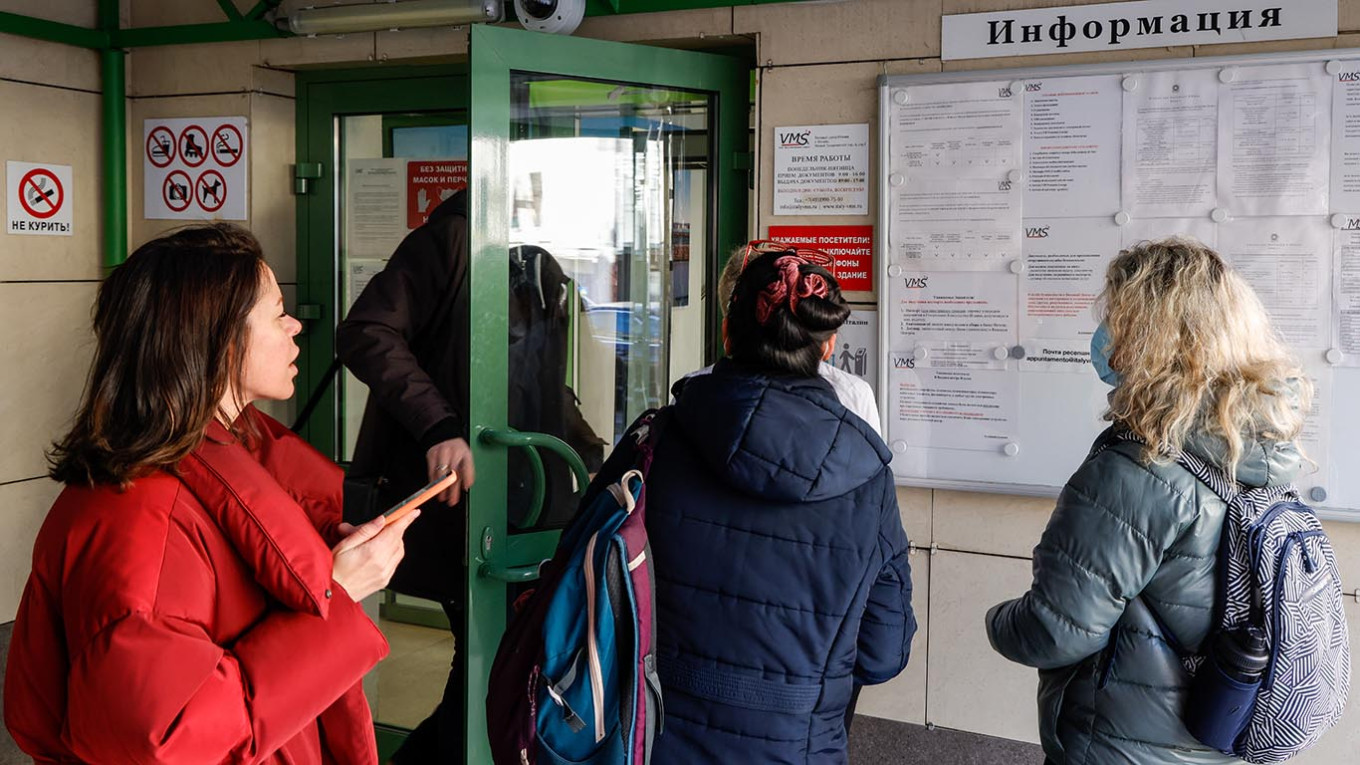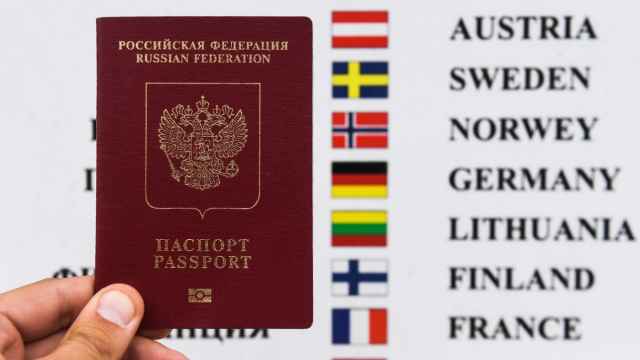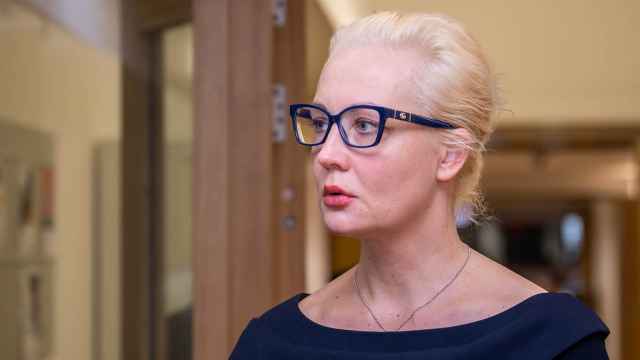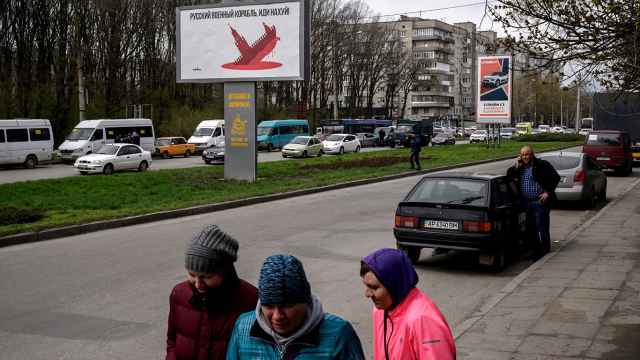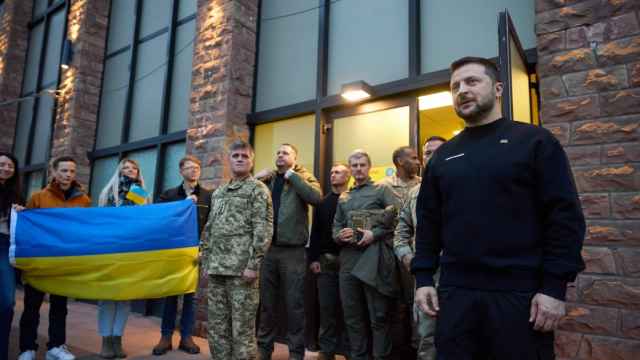The European Union has just banned Russians from obtaining multi-entry Schengen visas, billing the move as tightening the screws on the Kremlin. In practice, it does the opposite.
Many of Russia’s elites still glide through Europe on “golden passports” and “golden visas,” boarding their private jets without a care in the world. Ordinary Russians, meanwhile, now face soaring costs and tighter restrictions just to visit family, study abroad or take a holiday.
This new policy may look tough, but it punches down, not up. Russia’s elite, the very people who fund and benefit from the regime, already hold multiple citizenships and offshore assets to protect themselves.
It is teachers, students and pensioners who will be stranded, along with families divided by intermarriage or migration. These are precisely the people the West should want to keep close, yet they are the ones being shut out.
When Europe closes its doors, Russians don’t stop traveling — they simply turn to Turkey, China or other destinations more aligned with Moscow.
Allowing ordinary Russians to travel benefits both sides. For the West, it keeps channels of communication open, exposes Russians to democratic societies and builds long-term goodwill that no propaganda can erase.
For Russians, travel offers perspective, connection and the chance to see that Europe’s values are lived realities, not hostile myths. Isolation breeds resentment and fear, while contact breeds understanding and, eventually, change.
Meanwhile, millions of Russian speakers already living in Europe, including an estimated 3.5 to 4.5 million in Germany alone, are growing increasingly alienated. With family ties severed, many are becoming vulnerable to far-right, pro-Russian parties that promise restored connections and dignity.
“Traveling to and freely moving within the EU is a privilege, not a given,” declared EU foreign policy chief Kaja Kallas.
It was a sound bite crafted for Brussels, but also a gift for Moscow. The Kremlin’s propagandists will seize on it as proof that “Russophobia” runs deep in the West, feeding Putin’s narrative that Russia is targeted not for its crimes, but for its identity.
The response from Moscow was indeed swift. Foreign Ministry spokeswoman Maria Zakharova wrote on Telegram that the EU now favours undocumented migrants over law-abiding Russian tourists.
“She was, of course, speaking about the millions of illegal migrants who are now being given preferential treatment by the European Union,” Zakharova said, adding that this was “not about legal tourists who paid for visas and went to see the Eiffel Tower or go shopping in Milan.”
A key point is that the EU’s new restrictions target Russians still living in Russia. Officially, those who left the country after the full-scale invasion or mobilization can still apply for multiple-entry visas at EU consulates abroad.
In reality, however, this concession is limited. Since September 2022, Brussels has tightened visa application rules for Russians in third countries, including Kazakhstan, Serbia, Turkey and the UAE.
Even before the new ban, obtaining a long-term Schengen visa was becoming next to impossible for most Russians. Brussels suspended its visa facilitation agreement with Moscow in 2022, shortening visa validity, raising fees and tightening requirements.
Several EU states went further, banning travel on non-biometric passports or demanding travellers take out special insurance. With consular staff reduced and waiting times stretching into months, the number of Schengen visas issued to Russians has collapsed from around four million in 2019 to just over half a million in 2024.
Until now, travellers with clean records could still count on multi-entry visas from countries like France or Italy. That small lifeline is now being cut by the EU, targeting the few Russians still trying to stay connected to Europe.
In the future, visas will likely be issued primarily for short periods from one to three months and possibly for a single entry.
Exceptions will remain only for those who have objective grounds for regular travel for work, medical treatment or family reasons.
Europe may be shutting out students and pensioners, but its red carpets are still rolled out for the rich. The Kremlin’s inner circle can buy what ordinary Russians are now denied: easy passage and a warm welcome in the West.
Meanwhile, Russia’s elites still jet between St. Tropez and London on golden passports and visas. Between 2015 and 2022, more than 200 Russian millionaires secured British “golden visas” even after the government vowed to crack down on the system’s abuse by oligarchs, according to OpenDemocracy.
At least seven Russian businessmen and officials sanctioned by the EU, the United States or Ukraine have obtained Maltese passports through the island’s “golden visa” program, a Financial Times investigation revealed in April this year. They are among 16 individuals who managed to buy Maltese citizenship despite sanctions or criminal records
Russia is now back among the top three nationalities buying their way into Portugal through its “golden visa” programme, which trades residency for investment.
In 2024, a record 248 Russian citizens secured these visas, placing them behind only Americans and Chinese. The surge comes despite a post-invasion freeze on Russian applicants in 2022.
After a series of legal challenges in European courts, the ban was quietly lifted, reopening the door for wealthy Russians to purchase EU residency even as ordinary travellers face growing restrictions.
Nearly four years after Russia’s invasion of Ukraine, Europe’s decision to restrict Schengen visas for Russian citizens stems from growing security fears. EU governments have accused Moscow of orchestrating cyberattacks, arson and sabotage across the continent, part of a broader effort to destabilize the EU and NATO.
Latvia’s foreign minister, Baiba Braže, urged member states this May to halt visa issuance entirely, warning that applications from Russian nationals rose by 25% in 2024 despite these threats. With alleged spies now on trial in several countries, the concern is understandable, but the response is blunt.
A smarter policy would focus on screening and accountability, not blanket exclusion. Enhanced vetting, biometric checks and tighter coordination between intelligence services could address genuine security risks without severing ordinary Russians from contact with Europe.
Cutting off travel punishes the wrong people. Keeping cultural, educational and family ties alive is not a security threat — it is an investment in a future where Russia looks outward, not inward.
Every new blanket restriction on Russian citizens plays directly into the Kremlin’s hands. It strengthens the siege mentality that Moscow has long tried to instill, the belief that the West despises Russians as a people, not just their leaders.
That narrative is central to the regime’s control, rallying even disillusioned citizens around a sense of collective victimhood and isolation. Each closed border and revoked visa helps turn that fiction into a lived reality.
If Europe truly wants a freer, more open Russia in the long run, it should do the opposite: make it easier for ordinary Russians to see, study and think beyond their borders. Isolation breeds loyalty to power. Connection sparks change.
A Message from The Moscow Times:
Dear readers,
We are facing unprecedented challenges. Russia's Prosecutor General's Office has designated The Moscow Times as an "undesirable" organization, criminalizing our work and putting our staff at risk of prosecution. This follows our earlier unjust labeling as a "foreign agent."
These actions are direct attempts to silence independent journalism in Russia. The authorities claim our work "discredits the decisions of the Russian leadership." We see things differently: we strive to provide accurate, unbiased reporting on Russia.
We, the journalists of The Moscow Times, refuse to be silenced. But to continue our work, we need your help.
Your support, no matter how small, makes a world of difference. If you can, please support us monthly starting from just $2. It's quick to set up, and every contribution makes a significant impact.
By supporting The Moscow Times, you're defending open, independent journalism in the face of repression. Thank you for standing with us.
Remind me later.



